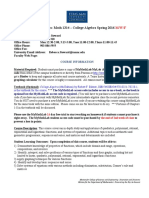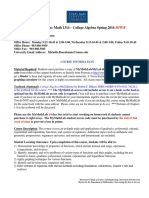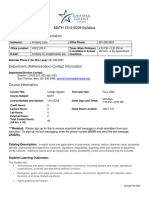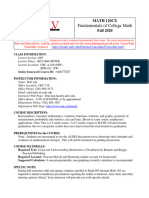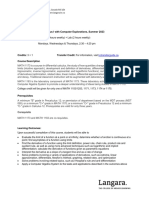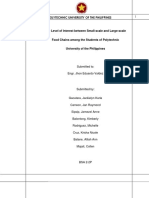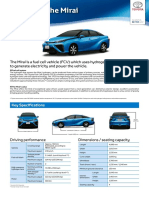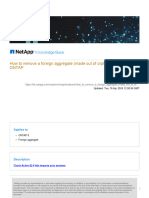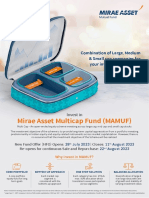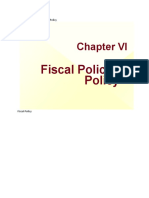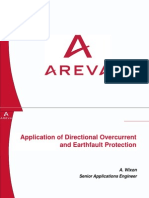0% found this document useful (0 votes)
25 views9 pages1551 Syllabus
The MATH 1551 Differential Calculus course syllabus outlines the course's goals, learning objectives, and topics, focusing on single variable calculus concepts and their applications. It includes details on course structure, grading policies, required materials, and important dates throughout the term. The syllabus emphasizes attendance, participation, and adherence to academic integrity, while providing resources for additional help and accommodations for students with disabilities.
Uploaded by
sie Rachid TraoreCopyright
© © All Rights Reserved
We take content rights seriously. If you suspect this is your content, claim it here.
Available Formats
Download as PDF, TXT or read online on Scribd
0% found this document useful (0 votes)
25 views9 pages1551 Syllabus
The MATH 1551 Differential Calculus course syllabus outlines the course's goals, learning objectives, and topics, focusing on single variable calculus concepts and their applications. It includes details on course structure, grading policies, required materials, and important dates throughout the term. The syllabus emphasizes attendance, participation, and adherence to academic integrity, while providing resources for additional help and accommodations for students with disabilities.
Uploaded by
sie Rachid TraoreCopyright
© © All Rights Reserved
We take content rights seriously. If you suspect this is your content, claim it here.
Available Formats
Download as PDF, TXT or read online on Scribd
/ 9











